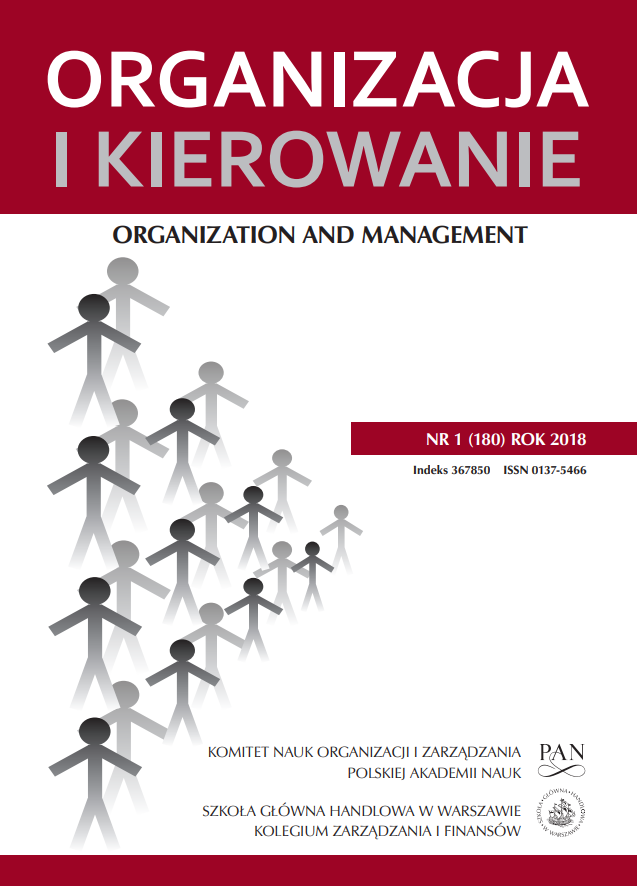Sposoby realizacji outsourcingu stosowanego w polskich przedsiębiorstwach – wyniki badań
The Ways of Implementing Outsourcing in Polish Companies – Research Results
Author(s): Jakub DrzewieckiSubject(s): Business Economy / Management, Evaluation research, Human Resources in Economy
Published by: Szkoła Główna Handlowa w Warszawie
Keywords: outsourcing; strategy; diversification; internalization; implementation;
Summary/Abstract: Outsourcing, being one of the most frequently used method of management also in Polish companies, enables to obtain various benefits. At the same time, the modern approach to outsourcing as a method of achieving strategic goals or modifying company’s business model, makes outsourcing implementation more and more frequently a challenging task. Numerous case studies describing failures when using outsourcing seem to prove the importance of decisions made during the implementation process. Therefore, the aim of the article is to present the research results on the ways of implementing outsourcing in Polish enterprises in the cross-section of three qualitative variables: size, level of diversification and internationalization degree. The findings presented in the article should enable to understand the approach of Polish companies to this method of management, as well as to specify the differences in this regard between companies differentiated by the aforementioned variables. The study includes a sample of 281 subjects and covers the ten outsourcing characteristics identified at the pilot research stage. In order to initiate contact with the respondents, four channels of communication were used: traditional mail, electronic mail, direct contact and via telephone (using the CATI technique). The research results show, that investigated companies have rarely used more sophisticated forms of outsourcing, such as profit or risk sharing. The highest average values were observed for variables related to: duration of the contract, sharing of human resources and exchange of information and strategic knowledge. The results of the study confirmed the relationship between the size of the enterprise and the level of most variables. Diversified companies were more likely to share the benefits and risks with their outsourcing partners, more often also included long-term contracts. On the other hand, companies operating outside of Poland also used outsourcing as an opportunity to share risks and benefits, organized informal meetings with outsourcing partners and exchanged information of strategic importance. A different way of using outsourcing in small and large companies may indicate differences in the awareness of outsourcing as a management method; large entities more often formalize the outsourcing process, create working teams responsible for implementing this management method, taking a project approach to outsourcing. This is usually accompanied by in-depth reflection on such issues as: the impact of outsourcing on the implementation of the strategy and the shape of the business model, outsourcing costs (especially in the long run), matching between the outsourcing provider and the outsourcer or the choice of outsourcing partner. Such reflection is often lacking for small entities that undertake outsourcing activities in a way often ill-conceived, if not chaotic. The conclusions presented in the article suggest the need to undertake further empirical research on outsourcing treated not only as a phenomenon, but also as a method of management consciously used in Polish enterprises. Increasing use of outsourcing in domestic companies should prompt reflection on the way in which outsourcing makes it possible to achieve the company's strategic goals and reconstruct its business model.
Journal: Organizacja i Kierowanie
- Issue Year: 180/2018
- Issue No: 1
- Page Range: 113-129
- Page Count: 17
- Language: Polish

